Gardeners Maryland: Cultivating Green Spaces in the Old Line State

Introduction to Gardening in Maryland
Maryland, known for its diverse climates and rich soil, is a haven for gardeners of all levels. Whether you're a seasoned horticulturist or just starting your gardening journey, Maryland offers a unique environment to cultivate a beautiful and thriving garden.
The state's varied geography, from the coastal regions to the mountainous areas, provides gardeners with a wide range of plants and techniques to explore. Understanding the local climate, soil types, and plant varieties is essential for creating a successful garden in Maryland.
In this comprehensive guide, we'll explore the best practices for gardening in Maryland, key areas for gardeners, and resources to help you grow your green thumb.
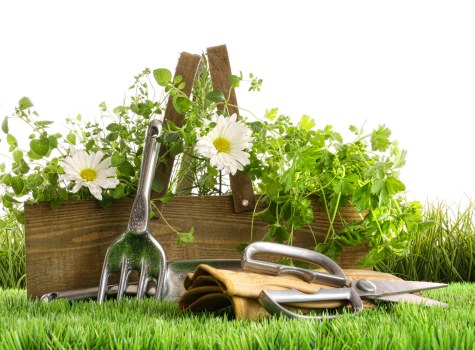
Understanding Maryland's Climate and Soil
Maryland experiences a humid subtropical climate in the eastern and central parts, while the western regions have a more continental climate. This diversity affects the types of plants that can thrive in different areas.
The soil in Maryland varies significantly across regions. Coastal areas have sandy soils, making them ideal for plants like beachgrass and sea oats. In contrast, the central regions boast rich, loamy soils perfect for vegetables, flowers, and ornamental plants.
To ensure your garden thrives, it's crucial to test your soil's pH and nutrient levels. Amending the soil with compost and organic matter can improve its texture and fertility, providing a healthy foundation for your plants.
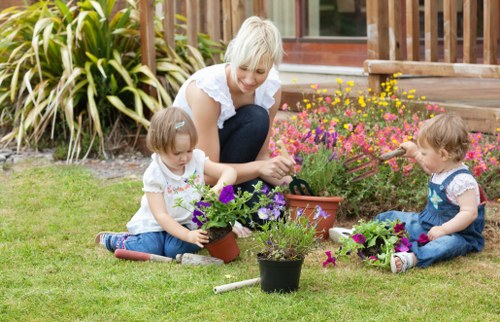
Choosing the Right Plants for Maryland Gardens
Selecting plants that are well-suited to Maryland's climate and soil conditions is key to a successful garden. Here are some popular choices for Maryland gardeners:
- Perennials: Plants like echinacea, black-eyed Susans, and daylilies are hardy and bloom year after year.
- Vegetables: Tomatoes, peppers, beans, and leafy greens thrive in Maryland's fertile soil.
- Herbs: Basil, rosemary, thyme, and mint are excellent for both culinary and ornamental purposes.
- Native Plants: Incorporating native species like cardinal flowers and goldenrods can support local wildlife and reduce maintenance.
Additionally, consider the sun and shade preferences of your plants. Most vegetables and flowering plants require full sun, while shade-tolerant plants are ideal for areas with limited sunlight.
Seasonal Planting Guide
Maryland's seasons offer different opportunities for planting. Spring is perfect for starting seeds indoors and transplanting hardy plants outdoors. Summer requires diligent watering and pest control, while fall is ideal for planting bulbs and preparing the garden for winter.
Understanding the planting calendar for Maryland ensures that your garden remains vibrant and productive throughout the year.
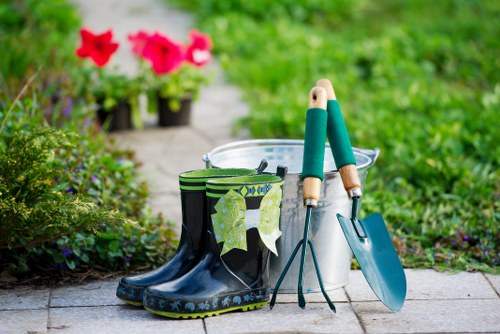
Essential Gardening Tips for Maryland Residents
Successful gardening in Maryland involves a combination of proper planning, maintenance, and attention to detail. Here are some essential tips to help you cultivate a thriving garden:
- Plan Your Garden Layout: Consider the space available, sunlight exposure, and plant compatibility when designing your garden layout.
- Soil Preparation: Test and amend your soil as needed to provide optimal conditions for your plants.
- Watering Practices: Implement efficient watering systems like drip irrigation to conserve water and ensure your plants receive adequate moisture.
- Pest Management: Use integrated pest management techniques to control pests without harming beneficial insects.
- Regular Maintenance: Keep your garden tidy by pruning, weeding, and monitoring plant health regularly.
By following these tips, Maryland gardeners can create and maintain beautiful gardens that flourish in the local environment.
Composting and Soil Health
Composting is a sustainable way to enrich your garden soil. By recycling kitchen scraps and garden waste, you can produce nutrient-rich compost that enhances soil structure and fertility.
Healthy soil supports robust plant growth, improves water retention, and reduces the need for chemical fertilizers. Incorporate compost into your garden beds to promote a thriving ecosystem.
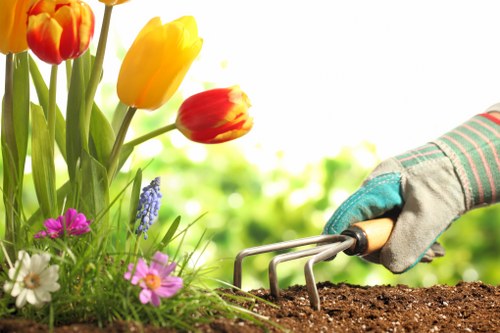
Top Gardening Resources in Maryland
Maryland offers a wealth of resources for gardeners, including state agricultural extensions, local nurseries, and gardening clubs. Utilizing these resources can provide valuable information, support, and community connections.
The Maryland Cooperative Extension Service offers workshops, seminars, and publications on various gardening topics. Local nurseries and garden centers provide region-specific plants and expert advice tailored to Maryland's climate.
Joining a gardening club or community garden can offer additional support and opportunities to share knowledge with fellow gardeners.
Online Gardening Communities
Engaging with online gardening communities can expand your knowledge and provide inspiration. Websites, forums, and social media groups dedicated to Maryland gardening offer a platform to ask questions, share experiences, and learn from others.
These communities can be especially helpful for troubleshooting common gardening challenges and staying updated on the latest trends and techniques.
Exploring Nearby Areas for Gardening in Maryland
Maryland's proximity to various neighboring areas expands the gardening possibilities. Here are some of the closest regions and what they offer to gardeners:
- Frederick: Known for its vibrant farmers' markets and historic gardens, Frederick provides ample opportunities for local produce and floral gardening.
- Columbia: This planned community boasts numerous parks and community gardens, making it ideal for urban gardeners.
- Rockville: With its extensive green spaces and botanical gardens, Rockville is perfect for those seeking inspiration and relaxation.
- Bowie: Bowie offers a mix of residential gardens and public parks, providing diverse gardening environments.
- Annapolis: The capital city features waterfront gardens and maritime plant species, suitable for gardeners interested in coastal flora.
- Towson: Home to Towson University, this area has educational resources and community gardens for enthusiasts.
- Gaithersburg: Gaithersburg's diverse climate zones allow for a wide range of plant varieties and gardening styles.
- Silver Spring: Urban gardening spaces in Silver Spring cater to city dwellers looking to cultivate their green spaces.
- Bethesda: Bethesda's elegant gardens and landscaping provide inspiration for ornamental gardening.
- Hagerstown: With its agricultural heritage, Hagerstown is ideal for vegetable and fruit gardening.
- Bel Air: Bel Air offers community-supported agriculture programs and local gardening initiatives.
- Salisbury: Salisbury's gardens benefit from the region's fertile soil and favorable planting conditions.
- Greenbelt: Known for its eco-friendly initiatives, Greenbelt promotes sustainable gardening practices.
- Laurel: Laurel features both traditional and modern gardens, accommodating various gardening preferences.
- Ellicott City: Ellicott City's historic districts showcase beautifully maintained gardens and plant collections.
Each of these areas contributes to Maryland's rich gardening landscape, offering unique features and opportunities for both novice and experienced gardeners.
Common Gardening Challenges in Maryland and Solutions
Gardening in Maryland comes with its set of challenges, but with the right strategies, these can be overcome effectively.
Pest Control
Pests like aphids, slugs, and caterpillars can damage your plants. Implementing natural pest control methods, such as introducing beneficial insects like ladybugs and using organic pesticides, can help manage pest populations without harming your garden.
Weather Extremes
Maryland's weather can be unpredictable, with hot summers and cold winters. Protect your plants by using mulch to retain soil moisture during dry periods and covering sensitive plants during frost to prevent damage.
Soil Erosion
Heavy rains can cause soil erosion, washing away vital nutrients. To prevent this, create raised beds, install terraces on slopes, and use ground cover plants to hold the soil in place.
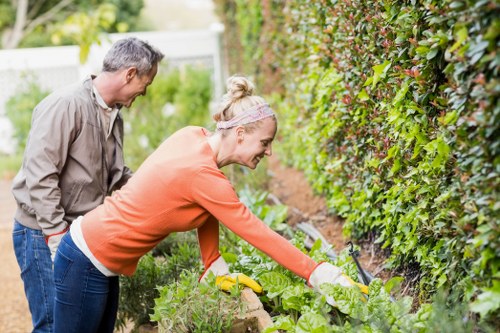
Innovative Gardening Techniques for Maryland
Adopting innovative gardening techniques can enhance your gardening experience and productivity in Maryland.
Vertical Gardening
Vertical gardening is an excellent solution for limited space. By growing plants upwards on structures like trellises, walls, or specialized frames, you can maximize your garden's potential and add visual interest.
Hydroponics
Hydroponic systems allow you to grow plants without soil, using nutrient-rich water instead. This technique is ideal for indoor gardening and places with poor soil quality.
Rainwater Harvesting
Collecting and utilizing rainwater for your garden reduces water consumption and provides your plants with natural, chemical-free moisture. Install rain barrels and set up an efficient irrigation system to make the most of this resource.
Companion Planting
Companion planting involves growing different plants together to enhance growth, deter pests, and improve soil health. For example, planting basil alongside tomatoes can boost tomato flavor and repel harmful insects.
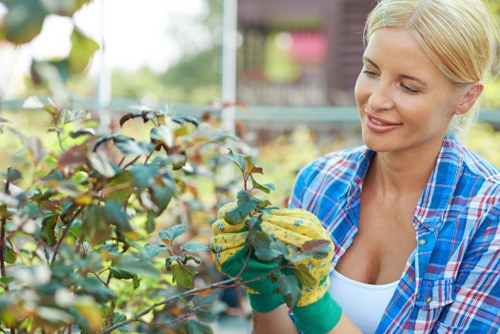
Community and Social Aspects of Maryland Gardening
Gardening in Maryland isn't just a solitary activity; it's also a community-driven endeavor that fosters social connections and collaboration.
Community Gardens
Community gardens provide shared spaces where individuals can grow their own plants while contributing to a collective green area. These gardens promote environmental stewardship, social interaction, and access to fresh produce.
Gardening Clubs and Workshops
Joining gardening clubs or attending workshops can enhance your skills and knowledge. These groups often organize events, share tips, and provide a platform for gardeners to network and support each other.
Volunteer Opportunities
Many organizations in Maryland rely on volunteers to maintain public gardens and green spaces. Volunteering not only benefits the community but also offers personal satisfaction and the chance to learn new gardening techniques.
Sustainable Gardening Practices in Maryland
Sustainability is at the heart of modern gardening. Maryland gardeners are increasingly adopting eco-friendly practices to minimize their environmental impact and create resilient gardens.
Organic Gardening
Organic gardening avoids synthetic fertilizers and pesticides, instead using natural alternatives to maintain soil health and control pests. This approach promotes biodiversity and reduces the risk of harmful chemical runoff.
Water Conservation
Implementing water-saving techniques, such as drip irrigation, mulching, and planting drought-resistant species, helps conserve water and ensures your garden remains healthy during dry spells.
Soil Health Management
Maintaining healthy soil through composting, cover cropping, and minimal tilling enhances the soil's ability to retain moisture, support plant growth, and prevent erosion.
Pollinator-Friendly Gardens
Creating habitats for pollinators like bees, butterflies, and hummingbirds supports local ecosystems and improves plant pollination. Plant a variety of nectar-rich flowers and provide shelter to attract these essential creatures.
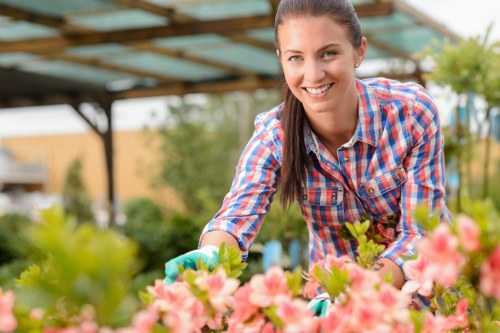
Conclusion: Embracing the Gardening Lifestyle in Maryland
Gardening in Maryland offers endless possibilities for creativity, relaxation, and community engagement. By understanding the local climate, selecting the right plants, and adopting sustainable practices, you can cultivate a beautiful and productive garden.
Whether you're tending to a small balcony garden or managing a sprawling backyard oasis, Maryland's diverse environments provide the perfect backdrop for your gardening endeavors.
Embrace the gardening lifestyle in Maryland and enjoy the numerous benefits it brings, from fresh produce and vibrant flowers to enhanced well-being and community connections.
Frequently Asked Questions
1. What are the best plants for Maryland's climate?
Maryland's diverse climate supports a wide range of plants, including perennials like echinacea and black-eyed Susans, vegetables such as tomatoes and peppers, and native species like cardinal flowers. It's essential to choose plants suited to your specific region within Maryland.
2. How can I improve my garden's soil in Maryland?
Testing your soil's pH and nutrient levels is the first step. Amend the soil with compost and organic matter to enhance fertility and structure. Incorporating mulch can also improve moisture retention and suppress weeds.
3. What are some sustainable gardening practices for Maryland?
Sustainable practices include organic gardening, water conservation through drip irrigation and mulching, soil health management with composting and cover cropping, and creating pollinator-friendly habitats.
4. Where can I find gardening resources in Maryland?
The Maryland Cooperative Extension Service offers workshops and publications. Local nurseries, gardening clubs, and online communities also provide valuable resources and support for Maryland gardeners.
5. How do I manage pests naturally in my Maryland garden?
Use integrated pest management techniques by introducing beneficial insects like ladybugs, using organic pesticides, and practicing companion planting to deter pests naturally without harming your garden.